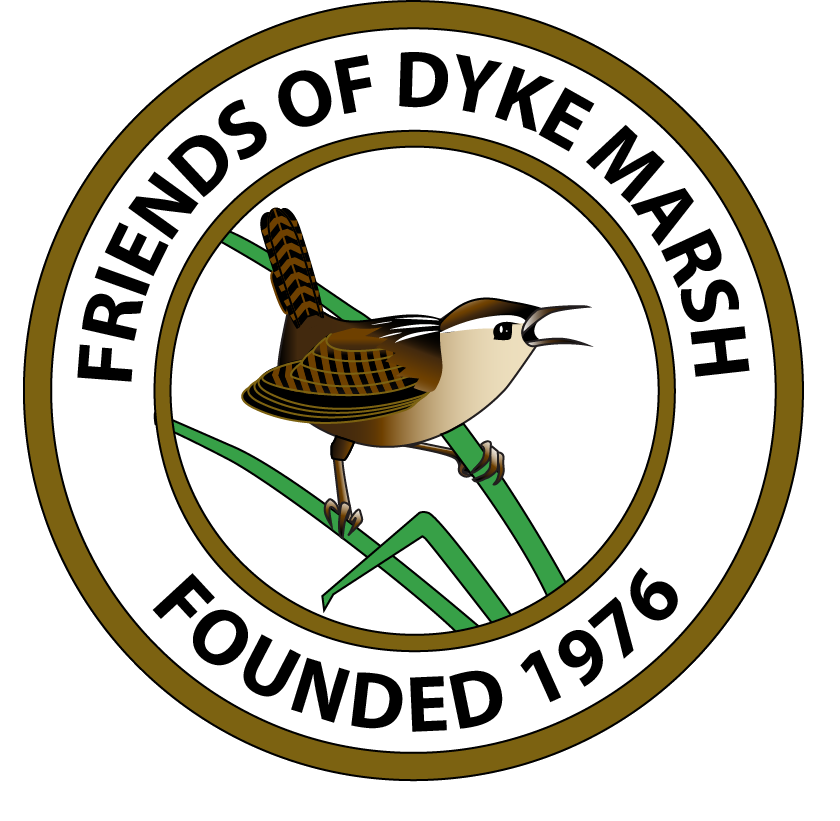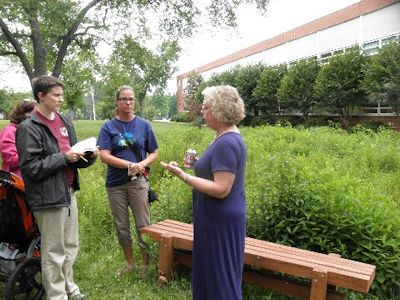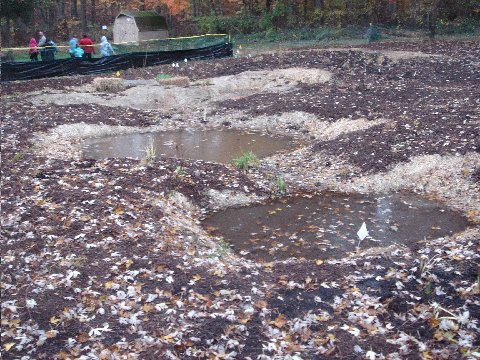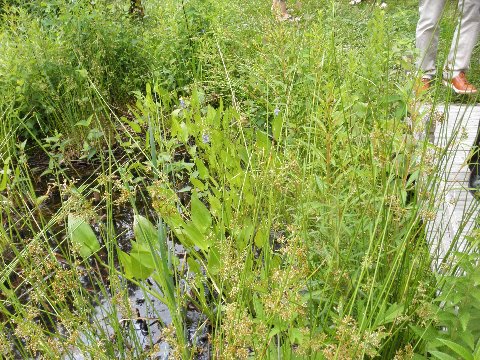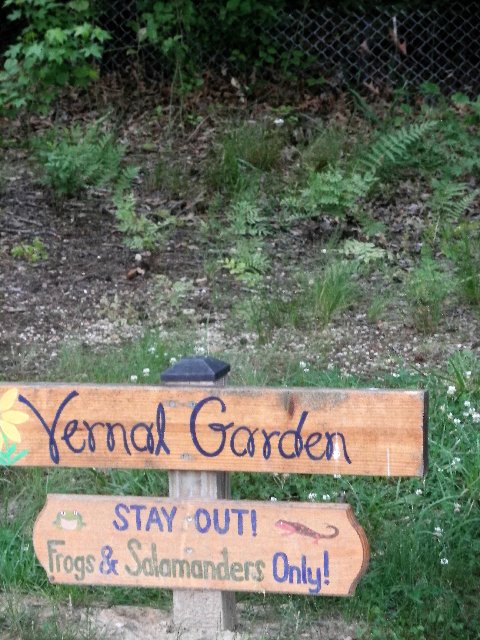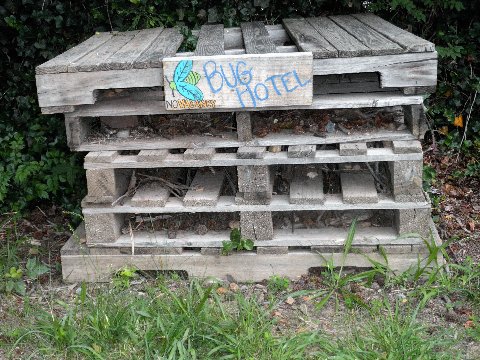One of Dyke Marsh’s neighbors, the Belle View Elementary School, has created outdoor classrooms over the last ten years which help restore and support our natural resources, including the Dyke Marsh Wildlife Preserve.
The 600-student school is just west of Dyke Marsh West. What happens upstream has effects downstream, especially for water quality. For species like birds, moths and butterflies that move throughout the environment, creating some natural connectivity and supportive habitat can be very important.
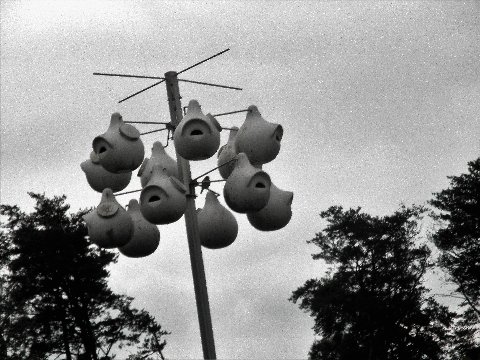 Principal Tom Kuntz put up purple martin boxes. Led by teacher Carolyn Bush and principal Tom Kuntz, the Belle View team has created several opportunities for students to learn science, study nature and become better stewards of their environment:
Principal Tom Kuntz put up purple martin boxes. Led by teacher Carolyn Bush and principal Tom Kuntz, the Belle View team has created several opportunities for students to learn science, study nature and become better stewards of their environment:
- a wetland consisting of four ponds that is in part spring fed and collects stormwater. Native plants like Joe Pye weed, black-eyed Susans, lizard’s tale and pickerelweed are flourishing. The students put in several hundred plants.
- a butterfly garden. Students are raising monarch butterfly larvae in the indoor classrooms.
- a vernal pool garden for frogs and salamanders.
- a “bug hotel” of stacked pallets where student put sticks, gum balls and other natural objects and look for insects.
- Bird houses and feeder stations. Students fill up the feeders and try to identify the birds that come. (One sparrow won’t move out of a purple martins’ house!)
- A vegetable garden where students plant, harvest and eat fresh vegetables.
In addition to the outdoor classrooms, the physical education teacher composts uneaten vegetables and scraps from the school cafeteria for use in the gardens. The school recycles many items, including markers and pens, and one of the students’ jobs is to take the recyclables to a bin. Finally and importantly, one of the schools rules is, “Respect nature.”
Photographs by Glenda Booth
|
|
|
|
|
